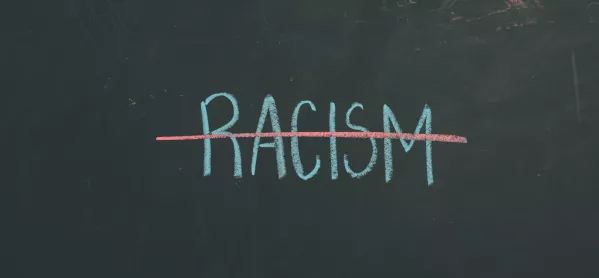The horrors of the transatlantic slave trade, brutal subjugation, dehumanisation and subsequent lack of historical archive or reparation represents one of the most tumultuous and disgraceful stains in the history of our collective historical heritage.
For me, racism is not calling someone a name - it is the aftershock left in the wake of a profound system of degradation over hundreds of years, by which one group controlled another, castrating them socially, politically and economically. The British government, let’s not forget, paid out £20 million to compensate some 3,000 families for the loss of their slaves when slave ownership was abolished in British colonies in 1833. This figure represented a gigantic 40 per cent of the Treasury’s annual spending budget.
The current national curriculum does not highlight the many prominent Afro-Scottish, Caribbean, and black British figures who have contributed significantly and positively not only to Scotland but to the UK as a whole. In the absence of such an approach, we have a world of racial profiling, physical and mental abuse and knee necking, and one in which BME (black and minority-ethnic) groups are less likely to be recruited after achieving a degree.
Background: Petition calls for Afro-Scottish history in curriculum
Racism: Scottish education can do better for BAME pupils
Background: BAME people ‘woefully underrepresented’ in schools
Archive interview: Antiracism educator Jane Elliott
LISTEN: Teachers ‘too scared’ to talk about racism
Decolonising the curriculum: ‘Use the school curriculum to tackle racism’
Just like your computer or smartphone, our education system should be as up to date and accurate as possible. New additions to our curriculum might include the role of the Moors right through to those historic figures including John Edmonstone (1793-1822), an expert in taxidermy and a teacher at the University of Edinburgh, where he trained Charles Darwin. Or how about Afro-British royalty: Sarah Forbes Bonetta, a Yoruba Egbado princess from Nigeria sold into slavery before becoming the beloved goddaughter of Queen Victoria. Or incredible hidden figures such as Katherine Johnson, the African-American female mathematician at the heart of Nasa’s space programme that put the first man on the Moon.
It is essential to take action that goes beyond the initial protests we have seen recently - so here are my five positive ways to change the world:
1. Reform the curriculum
I am calling for a commitment and pledge from policymakers for proactive antiracist action. In recognition of these historic times, a meaningful step that can be taken is the implementation of a thorough and robust account of Afro-Scottish and Caribbean history through the national education system. This would recognise those real-life events and contributions that continue to shape and support our society today culturally, socially and economically.
2. African diaspora business support fund charity
A vehicle for companies and individuals to help entrepreneurs and businesses from BME backgrounds.
3. Fourth plinth campaign
We have already raised £500,000 in donations to make it happen: I’m working with the charity, One Voice for Freedom, encouraging the UK government and the London mayor to urgently investigate finding a space in Central London for a fitting monument to honour those of Afro-Caribbean descent that aided in making Britain great.
4. Black heritage museum
Building the first BME heritage museum, showing the positive contributions that Afro-Caribbeans have made to Scotland, would enable us all to learn about our collective history regardless of our race, class or religion.
5. Black women in film
BME women worldwide are among the most marginalised historically, and have had few opportunities to represent themselves on screen. I am seeking funding to direct my first short film on race relations in Scotland.
As my petition to the Scottish Parliament makes clear, however, education is absolutely fundamental if we are to achieve meaningful change.
Eunice Olumide is an author, art curator and model. She has a lodged a petition in the Scottish Parliament calling for reform of the curriculum to include Afro-Scottish history

